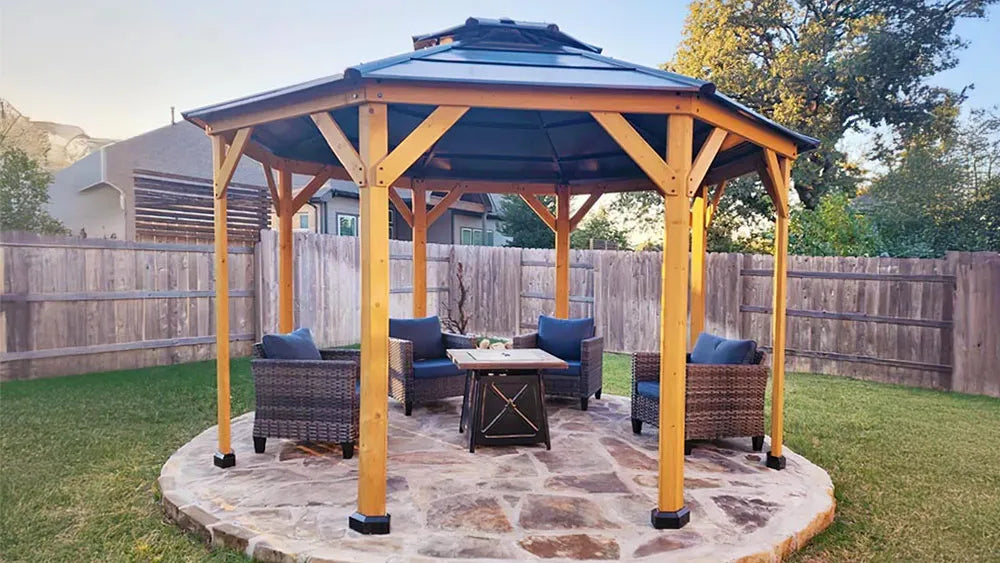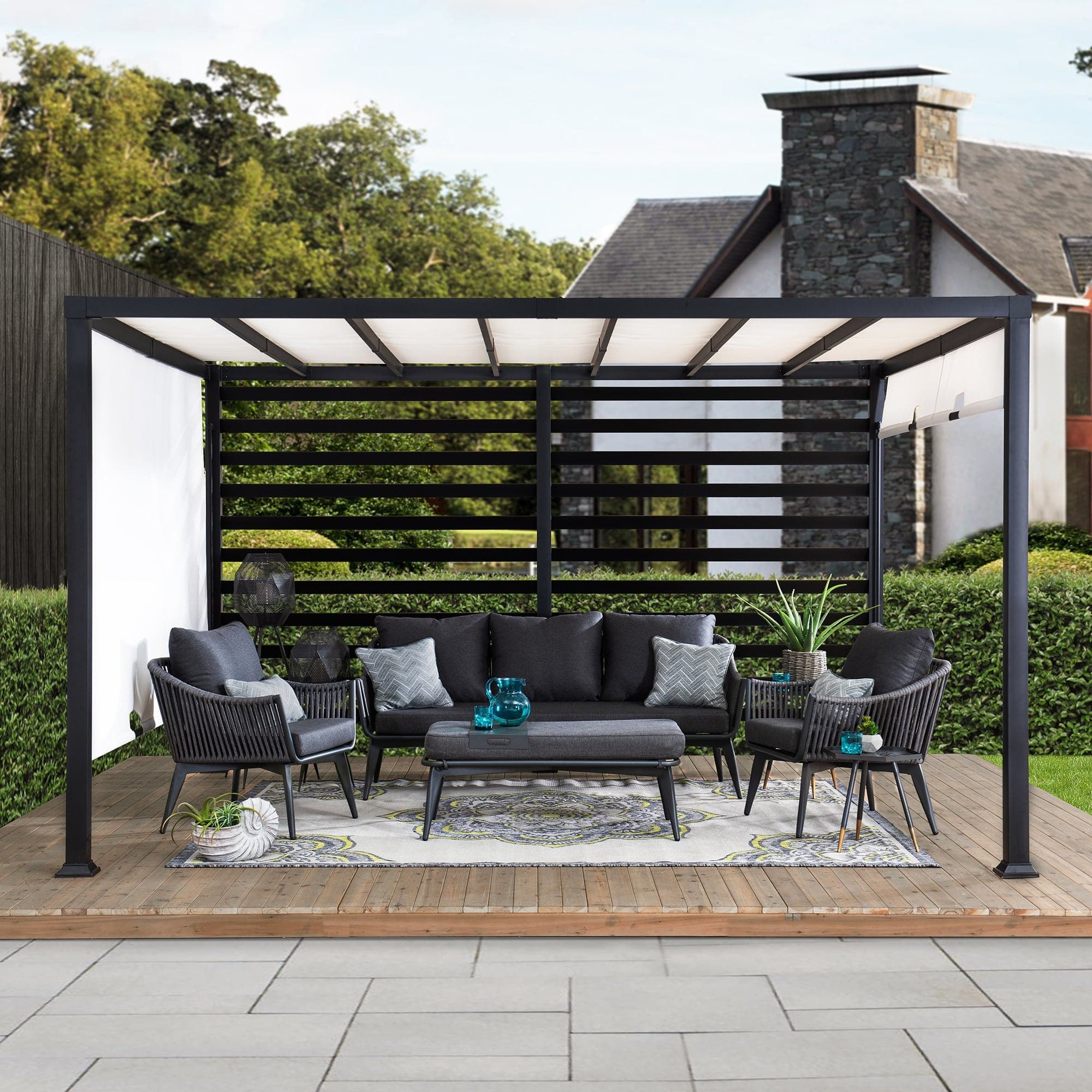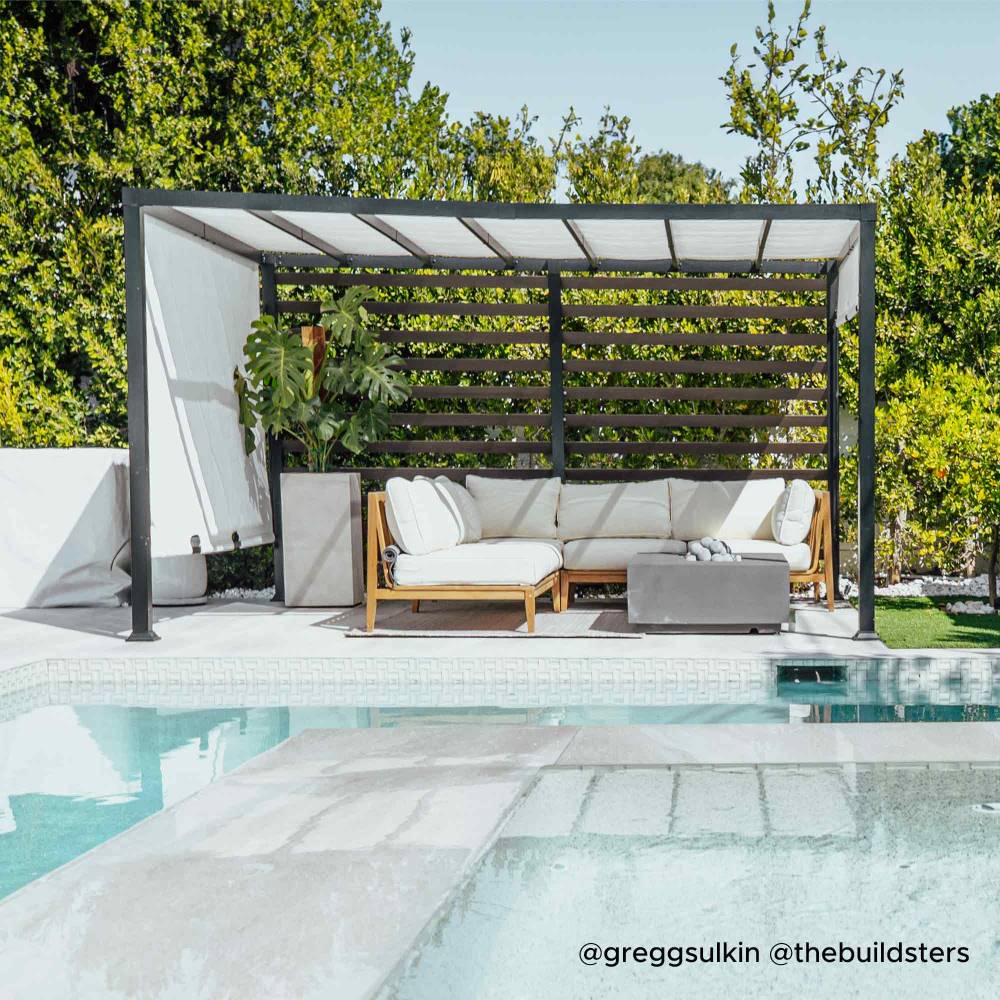A gazebo can be the crown jewel of your backyard — a shaded retreat for family gatherings, morning coffee, or quiet reading. But one common frustration for gazebo owners is keeping the area underneath dry. After all, rain, morning dew, or melting snow can easily seep in, turning your serene escape into a damp, slippery mess.
The good news? With a few smart strategies, you can keep your gazebo floor dry year-round without compromising style or comfort. Whether you have a hardtop gazebo, a soft-top model, or a wooden pavilion, today’s design and maintenance innovations make moisture control easier than ever.
In this guide, we’ll explore practical tips, design upgrades, and smart accessories that protect your gazebo space — ensuring it remains inviting, functional, and ready for use no matter what nature throws your way.
1. Start with a Strong Foundation
The first line of defense against water is a proper base. Many gazebo owners underestimate how much the foundation affects drainage.
Concrete Pads: The All-Weather Option
A slightly sloped concrete base allows rainwater to flow away from the center, keeping the area beneath dry. Make sure to include:
A ¼ inch per foot slope away from the gazebo center
Waterproof sealant to prevent seepage through cracks
Concrete works especially well for hardtop gazebos, such as the SUNJOY 13x15 Wooden Framed Gazebo with Ceiling Hook, which offers a stable surface for anchoring and excellent long-term durability.
Pavers and Gravel Bases
For a more decorative look, stone pavers or gravel can create a natural drainage layer. Gravel, in particular, absorbs rainwater and prevents pooling — an easy, affordable upgrade for anyone looking to install a gazebo without pouring concrete.
Pro Tip: Avoid mulch directly under gazebos — it traps moisture and can cause wood decay or mildew.
2. Elevate the Structure: Let It Breathe
If your yard tends to collect water, elevation is key. Raising your gazebo just a few inches can dramatically reduce moisture problems.
Consider installing adjustable deck risers or elevated wood decking panels beneath your structure. This creates airflow underneath and allows rain to drain naturally.
Wooden structures, like the SUNJOY 12x20 Cedar Framed Gazebo, pair beautifully with elevated foundations. The cedar’s natural oils resist rot, while the steel roof ensures rain never seeps through from above.
Why It Works: Elevation breaks the contact between the gazebo floor and damp ground, reducing mold, moss, and water damage.
3. Roof Design: The Unsung Hero of Dry Spaces
The roof is the most important feature when it comes to moisture control. A well-designed roof not only keeps rain out but also channels water safely away from your seating area.
Dual-Tier Vented Roofs
Hardtop models like the SUNJOY 13x15 Aluminum Framed Gazebo with Planters feature ventilated posts — allowing air circulation while preventing water buildup.
The upper vent keeps moisture from trapping heat or condensation, while the lower layer ensures rain rolls off efficiently.
Integrated Gutters and Downspouts
Modern gazebos now come with built-in gutter systems that collect and redirect water. By guiding rain toward designated spouts, you can prevent dripping edges or water from splashing onto your patio.
For existing gazebos, you can retrofit gutter extensions or install a drip edge using aluminum flashing.
4. Keep Water Out: Side Protection Matters
Even with the perfect roof, side rain spray and wind-driven moisture can dampen your space. The solution? Add protective side elements that shield without closing off airflow.
Curtains and Mosquito Netting
Soft barriers like water-resistant curtains or zippered netting prevent rain from drifting inside while maintaining ventilation.
The SUNJOY 10x10 Gazebo with Netting & Curtains is a perfect example — the dual-track system lets you close off the space during rain or open it for sunny days.
Roll-Down Privacy Screens
For extra control, consider outdoor-grade PVC or vinyl roll-down shades. They act as temporary walls and can be easily retracted when not in use.
Pro Tip: Choose UV- and mildew-resistant fabrics — they’ll last longer and resist discoloration caused by damp conditions.
5. Seal, Stain, and Maintain
Keeping your gazebo dry isn’t just about design — it’s also about regular maintenance.
Seal wooden posts and floors with outdoor-rated polyurethane or deck sealant. Reapply every 1–2 years.
Inspect roof panels and screws after storms; replace rusted parts promptly.
Clean gutters or roof vents to prevent clogs that cause overflow.
Use anti-slip mats or outdoor rugs designed for wet conditions to prevent puddles on flooring.
For cedar and wood gazebos, products like the SUNJOY 11x13 Wooden Hardtop Gazebo benefit greatly from annual sealing — it enhances weather resistance while maintaining the natural grain beauty.
6. Add Smart Drainage Around the Gazebo
Sometimes the problem isn’t the gazebo — it’s the landscape around it. If your yard slopes toward your structure, water naturally pools underneath.
French Drains
A French drain is a simple underground pipe surrounded by gravel that channels water away from your gazebo foundation.
Swales and Ground Grading
If you prefer a natural look, reshaping your yard to create gentle slopes ensures rain flows away instead of collecting at the base.
Rain Gardens
For eco-minded homeowners, a rain garden planted near your gazebo captures excess runoff — beautiful and functional at once.
7. Use Waterproof Furniture and Accessories
Even if your floor stays dry, damp air or light spray can affect your furniture. Choose outdoor-grade materials that resist mildew and dry quickly.
Synthetic wicker and aluminum are ideal for chairs and tables
Outdoor cushions with quick-dry foam prevent mold buildup
Plastic storage bins or deck boxes protect pillows and throws
Pair your seating area with the SUNJOY 40-Inch Propane Gas Fire Pit Table — its tile tabletop is moisture-resistant, making it a great addition for cozy, rain-proof gatherings.
8. Upgrade to a Polycarbonate Roof for Ultimate Protection
If you’re planning a new gazebo or upgrading an existing one, consider polycarbonate panels — a popular 2025 trend for keeping outdoor structures dry.
These panels are:
- Lightweight yet durable
- UV- and impact-resistant
- Naturally waterproof and easy to clean
Models like the SUNJOY 10x12 Polycarbonate Roof Wall-Mounted Gazebo offer the perfect mix of clarity and coverage. The translucent design lets in light while keeping out rain — ideal for decks, patios, or garden edges.
9. Use Mats, Drain Tiles, and Decking Systems
If you still experience moisture after heavy rain, layering can help. Install drainage mats or interlocking deck tiles under your gazebo furniture.
These systems allow air to circulate and water to flow beneath the surface, keeping your rugs and chairs dry even when the floor gets damp.
Look for PVC-based tiles with anti-slip patterns — easy to clean, replace, and rearrange.
10. Bonus Tip: Plan for Year-Round Comfort
Once you’ve mastered dryness, take your setup to the next level. Add:
Outdoor heaters or fire pits for chilly evenings
Ceiling hooks for lanterns or fans
Planters or greenery to absorb ambient moisture and beautify the space
SUNJOY’s hardtop gazebos come equipped with pre-drilled ceiling hooks, perfect for lighting or hanging heaters — ensuring your space is as cozy as it is dry.
Conclusion: Your Gazebo, Reimagined for All Seasons
Keeping the space under your gazebo dry doesn’t have to be a constant struggle. With smart planning, durable materials, and thoughtful accessories, you can enjoy your outdoor retreat in any weather.
From elevated bases and vented roofs to drainage systems and water-resistant fabrics, every detail matters in creating a space that feels dry, comfortable, and inviting year-round.
Whether you’re protecting a cedar-framed pavilion, upgrading a hardtop gazebo, or installing a modern polycarbonate model, SUNJOY offers innovative solutions designed to withstand the elements — beautifully.
So next time the rain starts to fall, you’ll be the one sitting under your gazebo, warm, dry, and smiling.






